a journey to a sustainable kitchen
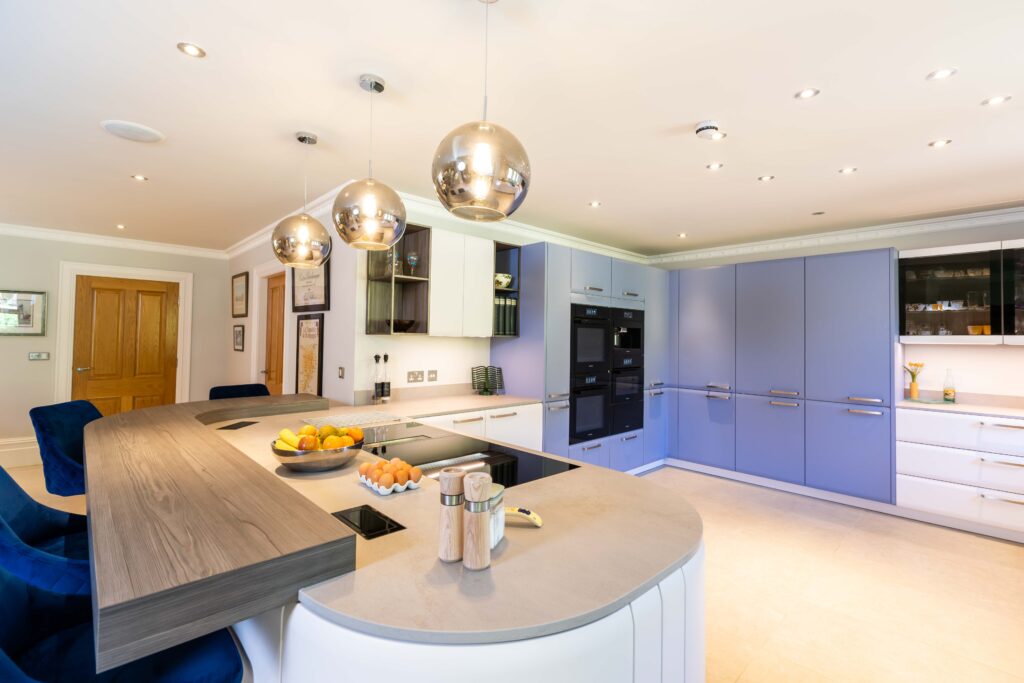
When designing a new kitchen, many factors need to be considered. As environmental concerns continue to rise, more of us are recognising the importance of sustainability in every aspect of our lives, including the heart of the home – the kitchen.
Investing in a new kitchen is an exciting venture, but it’s also an opportunity to make eco-conscious choices that benefit your household and the planet. In this blog, suga•küchen looks at creating a greener, sustainable space without compromising style.
the future of kitchen design
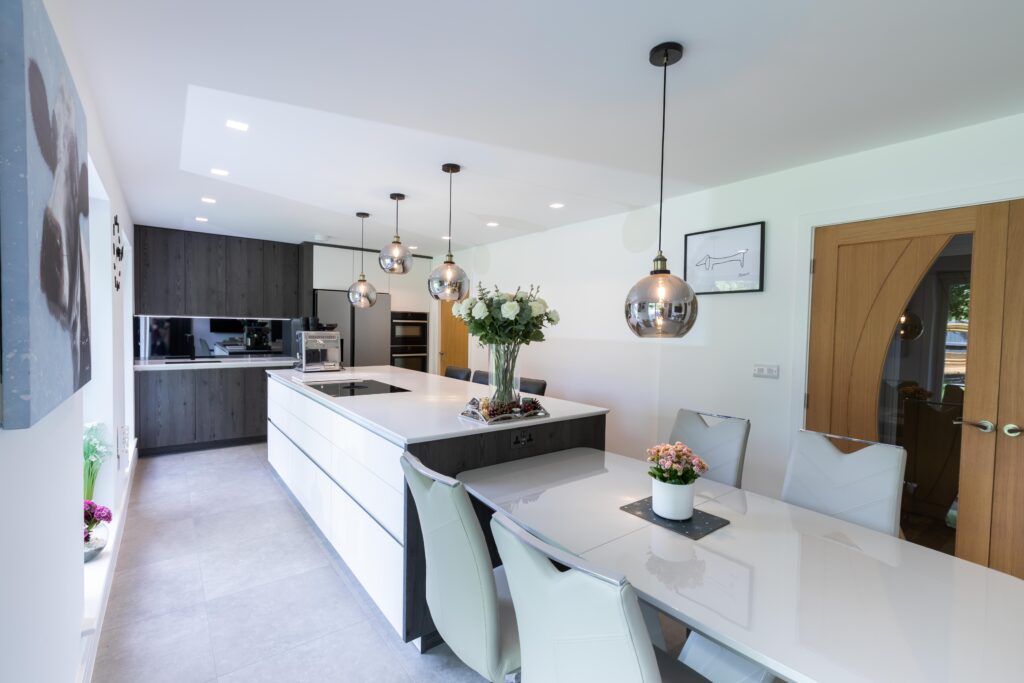
A sustainable kitchen goes beyond just being a stylish and functional space, it represents a commitment to reducing your environmental footprint and promoting a healthier planet. As one of the busiest areas in a home, they often involve significant use of energy, water, and materials. When you make sustainable choices, you can help conserve resources, reduce waste, and create a healthier environment for your family. Additionally, sustainable kitchens can offer long-term cost savings through improved energy efficiency and durability. Let us explore some key steps to achieving a sustainable kitchen.
if renovating, then recycle
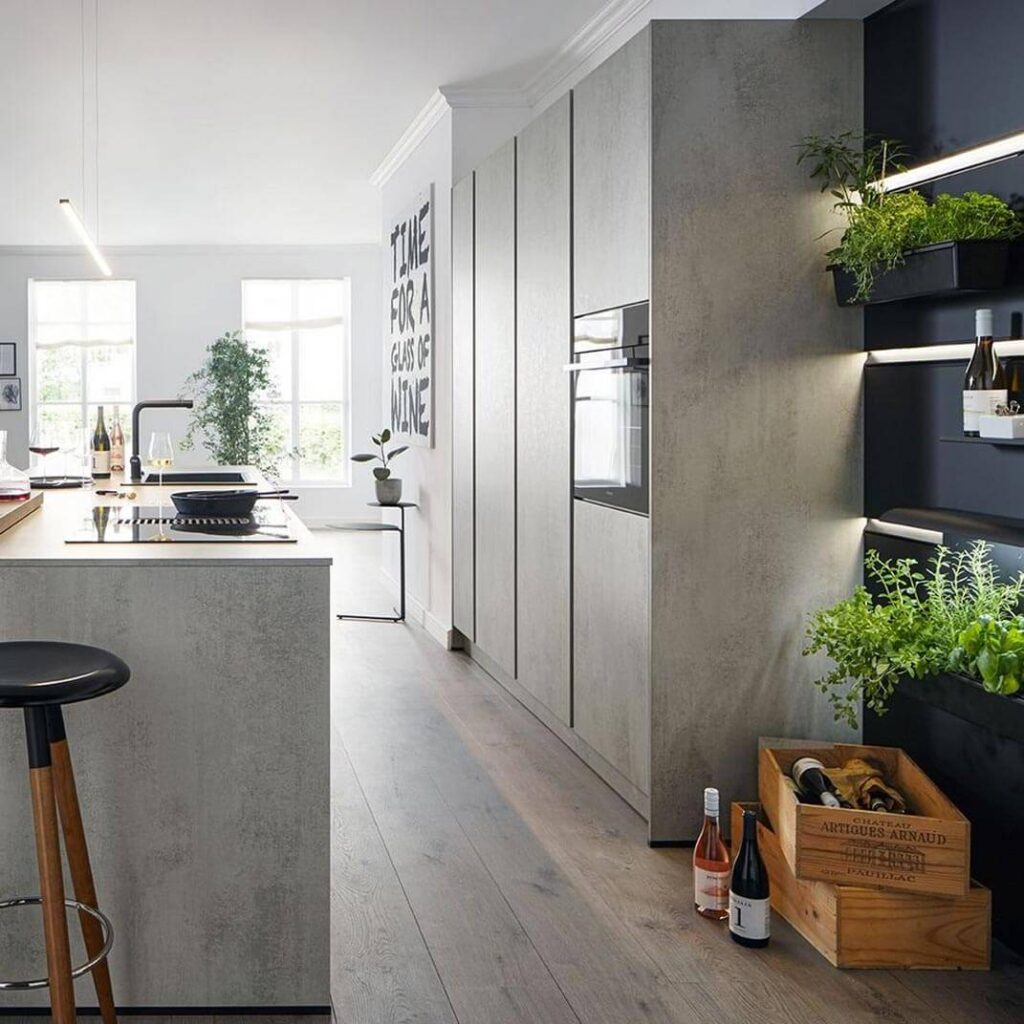
Before diving into the design of your new kitchen, consider what will happen to your old one. Recycling your old kitchen is the first step in sustainable kitchen design. Many elements of your existing kitchen, such as cabinets, worktops, and appliances, can be recycled or repurposed. By donating or selling items, you can give them a second life and reduce the amount of waste sent to landfill. Charities like Habitat for Humanity accept kitchen components for reuse in building projects, and you can always sell or give away your old kitchen items on platforms like Freecycle, Gumtree, or eBay. If your items are beyond reuse, then make sure to recycle them responsibly by taking them to the appropriate facilities.
be smart, choose eco-friendly
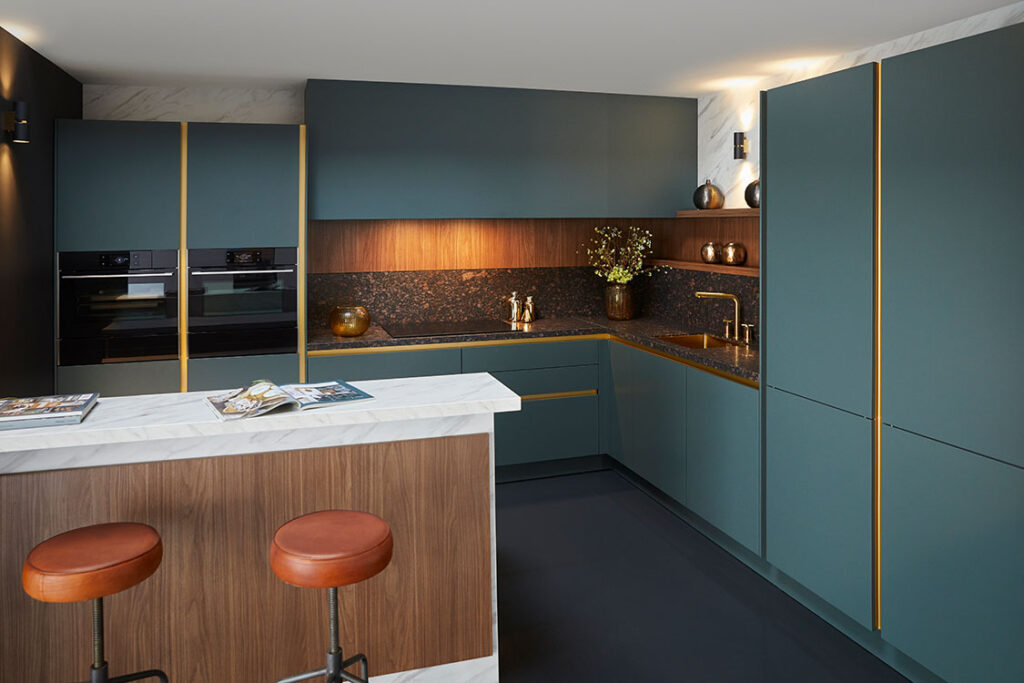
When selecting furniture for your new kitchen, choose eco-friendly options with a lower environmental impact. Sustainable furniture is made from materials that are either recycled, reclaimed, or sourced from sustainably managed forests. Look for furniture made from FSC (Forest Stewardship Council) certified wood, which guarantees that the wood has been sourced sustainably, and consider furniture made from recycled materials, such as worktops made from recycled glass or wood. Investing in high-quality, durable furniture that will stand the test of time also reduces the need for frequent replacements.
consider your materials
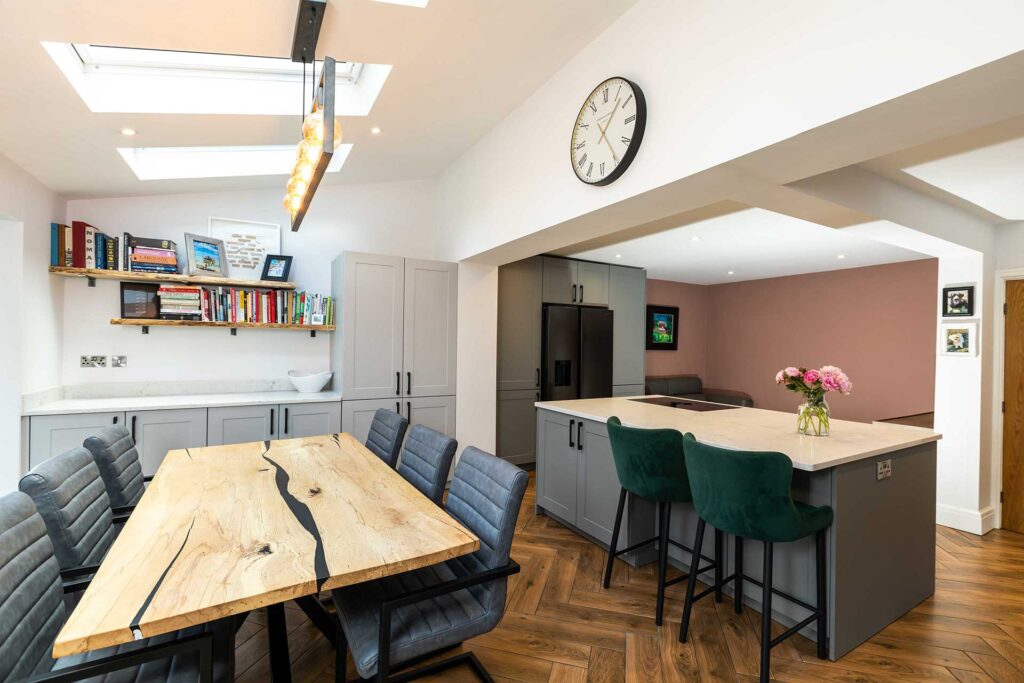
Using sustainable materials such as stone, granite, and wood in your new kitchen design is an excellent choice for the environment, offering a natural and organic aesthetic. Quartz worktops and wooden cabinets provide sustainability, durability, and timeless style. You can also opt for materials that are renewable, recycled, or have a low carbon footprint. One such material is bamboo, a fast-growing, renewable resource ideal for flooring, worktops, and cabinetry.
incorporate innovative lighting
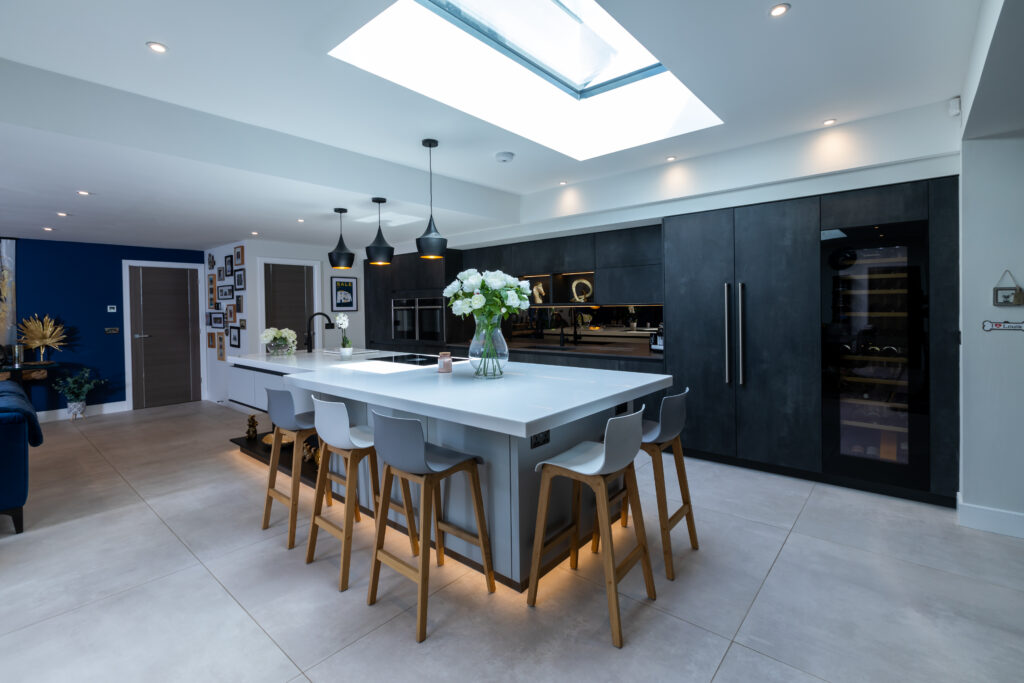
Lighting plays a crucial role in the functionality and ambience of your kitchen, but it can also be a significant source of energy consumption, so implementing sustainable lighting solutions can enhance your kitchen’s eco-friendliness. Depending on the layout of your design, maximise natural light by incorporating large windows, skylights, or light tubes. This reduces the need for artificial lighting and creates a brighter, more inviting space. LED bulbs are highly energy-efficient and have a longer lifespan than traditional incandescent bulbs, and incorporate smart lighting controls such as dimmers, motion sensors, and timers to control lighting and reduce unnecessary energy use.
sustainability with suga•küchen
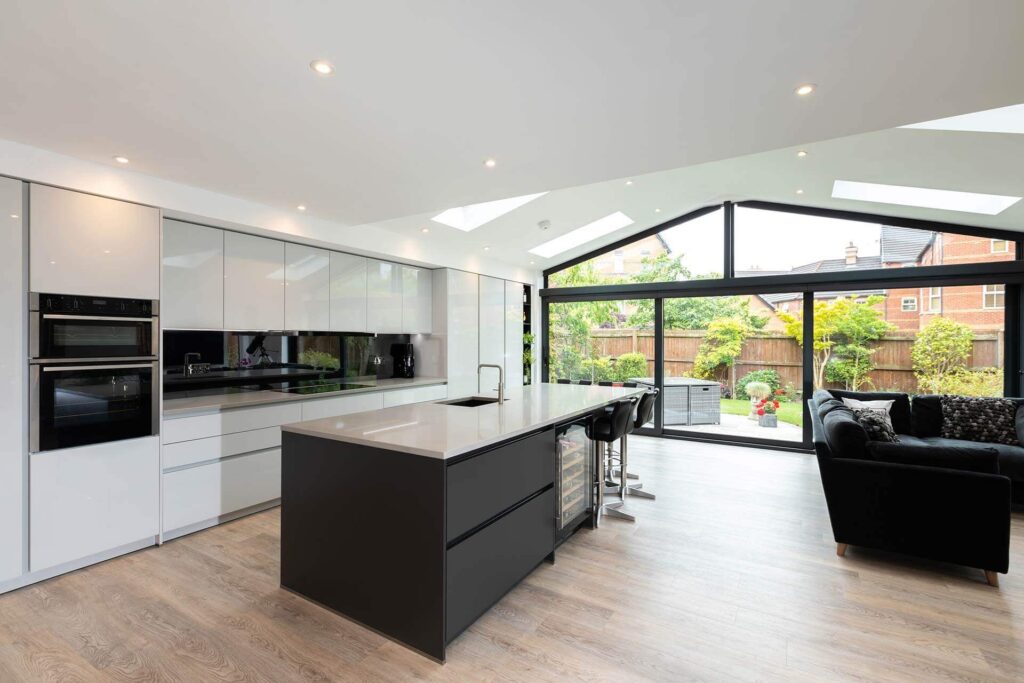
When it comes to our kitchens, we all have unique needs and requirements. At suga•küchen we ensure your new kitchen complements your lifestyle and reflects your tastes, but we are also dedicated to implementing green choices in your new design. We offer an exceptional collection of kitchens from German experts, next125 and Schüller, and Dutch innovators Keller. They are all renowned for their commitment to sustainability, with their products using responsibly sourced materials and energy-efficient processes.
“As a company with young children at home, we are even more conscious of the impact that our purchasing decisions have on our environment, so we’re committed to working with carbon neutral kitchen companies, sourcing furniture and worktops that have been manufactured from recycled materials in sustainable practices. We select highly rated energy saving appliances and even consider paint finishes that are eco-friendly.”
suga•küchen
Key to our sustainability is the quality of our kitchens and expert installations, meaning our kitchens are built to last. If you’d like a free design for your next sustainable and stylish kitchen, we’d be delighted to help. Contact us on 0161 962 7261.